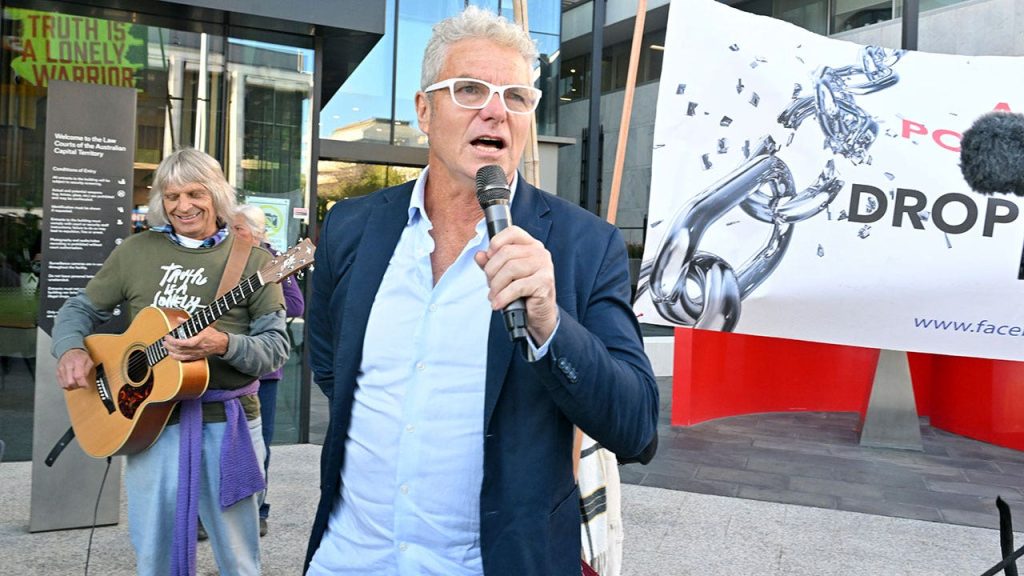David McBride, a former army lawyer, was sentenced to almost six years in prison for leaking classified information exposing alleged Australian war crimes in Afghanistan. He pleaded guilty to charges including theft and sharing secret documents with the media. This has raised concerns about whistleblower protections in Australia. An Australian judge sentenced McBride to almost six years in prison for his actions, ordering him to serve 27 months before parole eligibility.
McBride addressed his supporters as he walked his dog to the front door of the Australian Capital Territory Supreme Court to be sentenced, expressing his pride in being Australian and his belief that he was acting in the public interest. His lawyer, Mark Davis, stated that they would appeal a ruling that prevented McBride from mounting a defense, and disputed the ruling that McBride acted outside of his duties as an army officer. The severity of the sentence also created grounds for appeal, with the focus being on the earlier ruling.
McBride leaked classified information that formed the basis of an Australian Broadcasting Corp. television series in 2017 containing war crime allegations against Australian Special Air Service Regiment soldiers. Police raided the ABC’s headquarters in search of evidence but decided not to charge the reporters involved. In his sentencing, Justice David Mossop rejected McBride’s argument that he thought a court would vindicate him for acting in the public interest and characterized McBride’s beliefs about criminal activity within the military as not reflecting reality.
An Australian military report released in 2020 found evidence that Australian troops unlawfully killed 39 Afghan prisoners, farmers, and civilians. Recommendations were made for criminal investigations into 19 current and former soldiers. Police are working with an investigation agency to build cases against elite SAS and Commando Regiments troops who served in Afghanistan. Last year, a former SAS trooper was charged with a war crime, while Australia’s most decorated living war veteran was found likely to have unlawfully killed four Afghans in a civil court ruling.
Human Rights Watch’s Australia director called for exemptions in Australia’s whistleblowing laws to protect those acting in the public interest. McBride’s sentencing was criticized for penalizing the whistleblower rather than addressing the alleged war crimes. Some lawmakers raised the issue in Parliament, with one member accusing the government of failing to protect whistleblowers and calling for urgent reforms to prevent similar cases in the future. The Prime Minister declined to comment on the matter due to the ongoing legal proceedings, while independent lawmakers expressed their support for whistleblowers and criticized the treatment of McBride.













